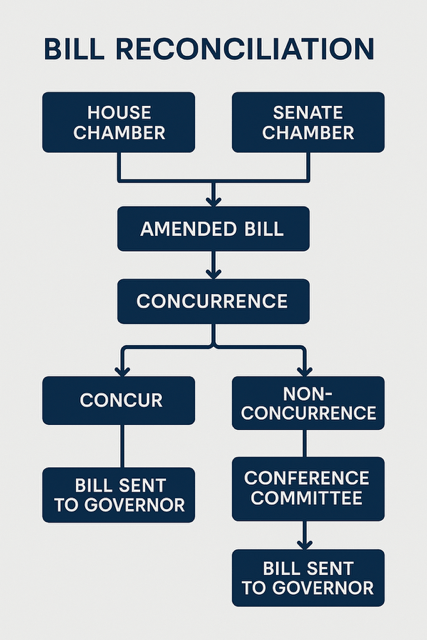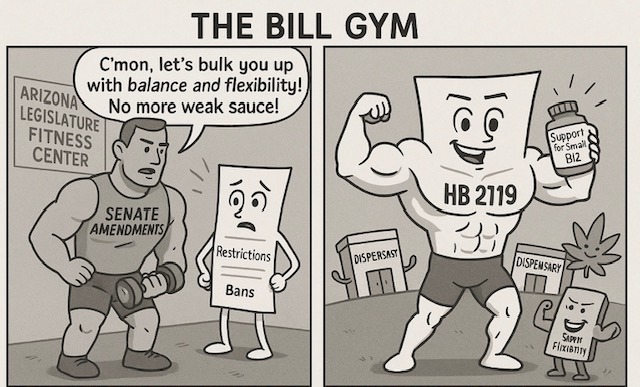PHOENIX, AZ — House Bill 2179 has passed the Senate’s third read and now heads back to the House for consideration of Senate amendments in a concurrence committee.
HB 2179 has undergone significant changes since its introduction, evolving from a tightly restrictive proposal into a more balanced approach to marijuana advertising in Arizona.
The original version of HB 2179 had set strict boundaries on how marijuana could be marketed. It had limited advertising only to licensed dispensaries and recreational marijuana establishments, with a complete ban on promoting THC products or marijuana paraphernalia that could appeal to individuals under 21. It had also imposed heavy location restrictions, prohibiting advertising near schools, public parks, and transit areas like bus stops and train stations.
Major Changes to HB 2179 Signal Shift Toward Balanced Marijuana Advertising
However, this all changed in the Senate Committee of the Whole (COW) last week. Adapting to survive, a floor amendment has revised the bill to take a more balanced approach.
Lawmakers have expanded the bill to include businesses that sell marijuana paraphernalia, not just licensed dispensaries. It has removed the provision limiting advertising rights to licensed marijuana businesses. The bill now focuses solely on marijuana and marijuana products, excluding all THC-related items.
While still aiming to protect youth, the bill now offers greater clarity and flexibility for small businesses. HB 2179 has shifted from a narrow, strict framework to one that better supports Arizona’s growing marijuana market.
Passes Senate Third Read with Flying Colors
Following its amendment in the Committee of the Whole last week, HB 2179 has moved to a third reading on April 29, where it has passed with a vote of 28-1-1. Support for the changes has been clear. During the final Senate reading, Senator Analise Ortiz, a Democrat from District 24, took to the floor to explain her vote and express approval of the amendment.
Ortiz said:
“I want to thank the sponsor of the bill and the sponsor of the amendment who worked with the hemp industry and Arizona NORML, who represents marijuana consumers, to make sure that this bill was amended so that it does not have any unintended consequences on the hemp industry. I think it is important for us to recognize that both the hemp industry and the marijuana industry are important to our economy, to our state, and to consumers. And I’m grateful that HB 2179 has been amended to find the right balance, and I vote aye.”
Here’s what happens next for HB 2179:

In Arizona, if a bill passes both chambers (the House and the Senate) but the second chamber (in this case, the Senate) has made amendments, the bill does not go directly to the governor.
The amended bill now returns to the House for consideration of the Senate’s changes.
At this stage, the House has two options:
Concur (agree) with the amendments: If the House agrees to the changes made by the Senate, they vote to approve the amended bill. If approved, the bill is then sent to the governor for signature or veto.
Refuse to concur: If the House does not agree with the amendments, the bill is sent to a conference committee made up of members from both chambers to resolve the differences.
The committee drafts a compromise version, which must then be approved by both the House and Senate.
Only after both chambers approve the same final version does the bill go to the governor for action.


